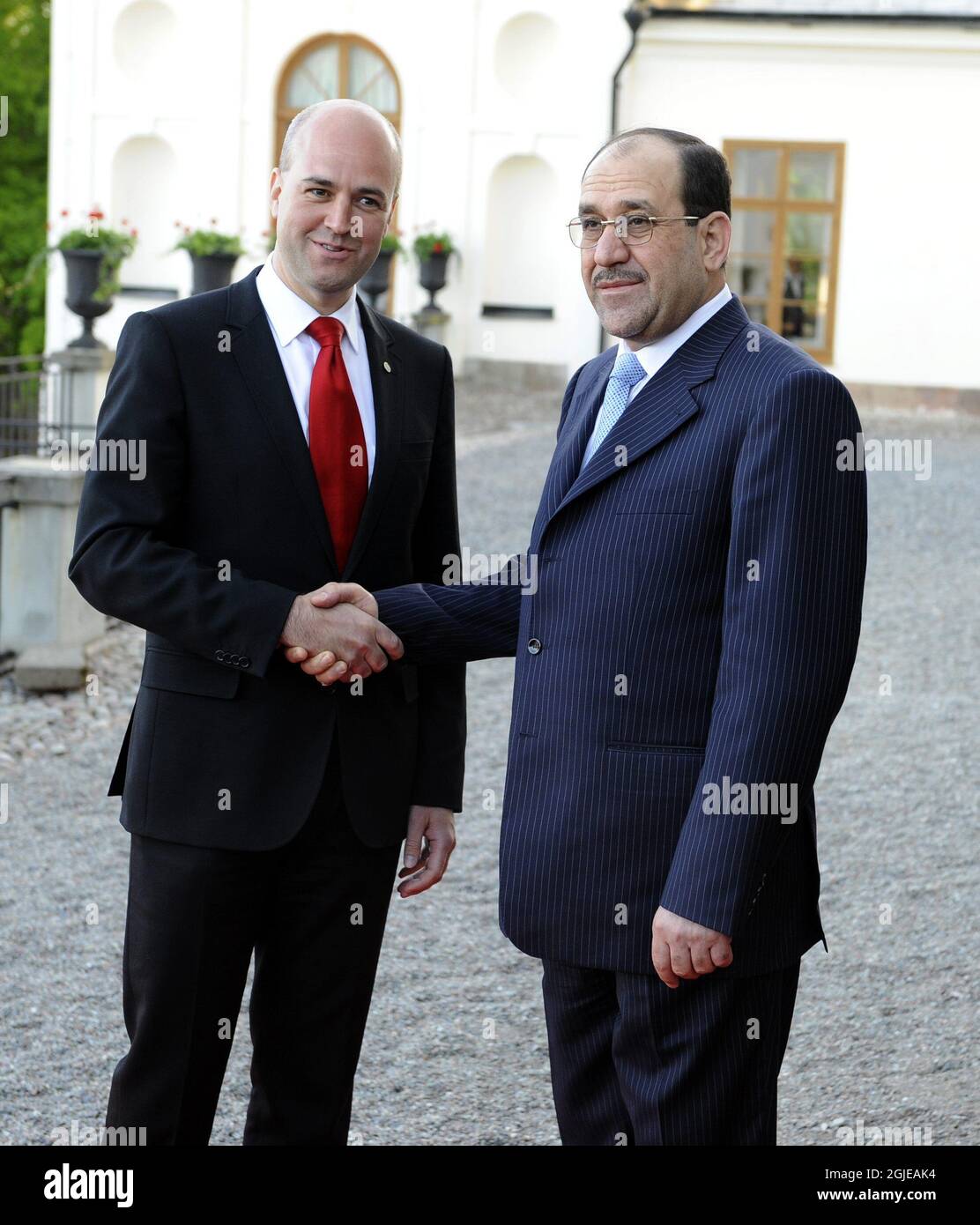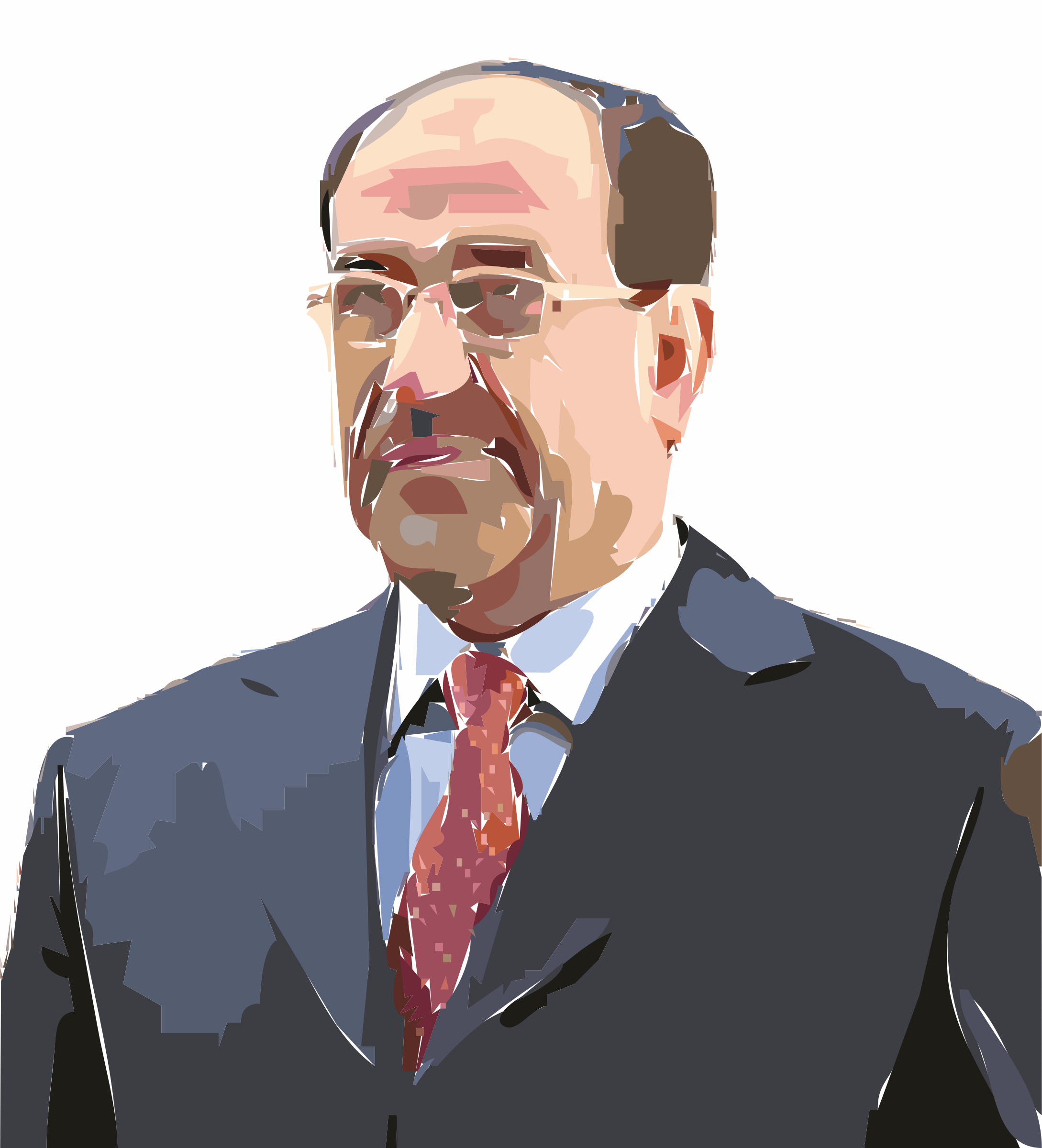Nouri Al-Maliki is a polarizing figure in Iraqi history, known both for his leadership during a turbulent period and for the controversies that have followed him.
Editor's Notes: Nouri Al-Maliki: Former Prime Minister Of Iraq And Controversial Figure have published today date
Former Prime Minister of Iraq Nouri Al-Maliki is a controversial figure who has played a significant role in Iraqi politics since the U.S.-led invasion of 2003. A Shiite Muslim, Al-Maliki served as Prime Minister of Iraq from 2006 to 2014.
During his time in office, he oversaw the withdrawal of U.S. troops from Iraq and the country's transition to a new constitution. However, he was also criticized for his authoritarian rule and sectarian policies.
After stepping down as Prime Minister, Al-Maliki remained active in Iraqi politics as the leader of the State of Law Coalition. In 2018, he ran for President of Iraq but lost to Barham Salih. Al-Maliki continues to be a controversial figure in Iraqi politics, but he remains a powerful figure within the Shiite community.
FAQs: Nouri Al-Maliki, Former Prime Minister Of Iraq And Controversial Figure
Nouri Al-Maliki holds a significant position in Iraq's modern history, serving as the country's Prime Minister from 2006 to 2014. During his tenure, he made pivotal decisions shaping Iraq's political landscape, which subsequently led him to face scrutiny and criticism. Here are answers to some frequently asked questions about Nouri Al-Maliki.

Iraqi Prime Minister Nouri al-Maliki to visit White House Monday - The - Source www.washingtonpost.com
Question 1: What factors contributed to Nouri Al-Maliki's political prominence?
Before becoming Prime Minister, Nouri Al-Maliki held various leadership roles within the Da'wah Party, an influential organization in Iraqi politics. His political acumen and affiliation with the party played a pivotal role in his rise to the Prime Ministership.
Question 2: What policies did Al-Maliki implement during his time as Prime Minister?
During his tenure, Nouri Al-Maliki implemented several policies addressing governance, security, and economic reforms. These included political reforms to strengthen Iraq's democratic institutions and efforts to enhance national security, such as the establishment of the Iraqi Armed Forces and Counter-Terrorism forces.
Question 3: What were some of the criticisms leveled against Nouri Al-Maliki?
Nouri Al-Maliki's leadership style and policies have been subject to criticism from within Iraq and internationally. Critics have accused him of promoting sectarianism, silencing political opponents, and failing to address widespread corruption during his premiership.
Question 4: What was the significance of Nouri Al-Maliki's departure from the Prime Ministership?
Nouri Al-Maliki's exit from the Prime Ministership in 2014 occurred amid political instability and ongoing armed conflict. His departure marked the end of an era in Iraq's political history and has had long-term implications for the country's governance and stability.
Question 5: How is Nouri Al-Maliki's legacy viewed in Iraq and beyond?
Opinions on Nouri Al-Maliki's legacy vary. Some regard him as a strong leader who navigated challenging circumstances, while others criticize his leadership style and the consequences of his policies. The complexities of Iraq's recent history contribute to the differing perspectives on his legacy.
Question 6: What are Nouri Al-Maliki's current activities and interests?
Following his departure from the Prime Ministership, Nouri Al-Maliki has maintained an active presence in Iraqi politics and beyond. He remains a prominent figure within the Da'wah Party. Additionally, he has engaged in writing and research, authoring several books and contributing to various publications.
Nouri Al-Maliki's premiership and the controversies surrounding his leadership will undoubtedly continue to be topics of debate. Perspectives on his legacy are likely to evolve as Iraq and the region navigate ongoing political and social transformations.
Transition to the next article section:
Tips by Nouri Al-Maliki: Former Prime Minister Of Iraq And Controversial Figure

Nouri Al-Maliki, Angela Merkel Editorial Photography - Image of - Source www.dreamstime.com
The following are some tips on how to be a better leader, according to former Iraqi Prime Minister Nouri al-Maliki:
Tip 1: Be decisive
Leaders need to be able to make tough decisions, even when they are unpopular. Maliki argues that a leader's first responsibility is to the people they serve, not to their own popularity.
Tip 2: Be honest
People need to be able to trust their leaders. Maliki believes that honesty is essential for building trust. He says that leaders should always be truthful with their people, even when the truth is difficult to hear.
Tip 3: Be courageous
Leaders need to be courageous in order to stand up for what they believe in. Maliki believes that courage is essential for making progress in the face of adversity. He says that leaders should never be afraid to take risks and to fight for what they believe in.
Tip 4: Be compassionate
Leaders need to be compassionate in order to understand the needs of the people they serve. Maliki believes that compassion is essential for building a just and equitable society. He says that leaders should always put the needs of the people first, and they should always strive to create a better world for all.
Tip 5: Be a good listener
Leaders need to be good listeners in order to understand the needs of the people they serve. Maliki believes that listening is essential for building trust and rapport. He says that leaders should always be open to hearing the concerns of others, and they should always be willing to learn from their mistakes.
Conclusion
These are just a few of the tips that Nouri al-Maliki has offered on how to be a better leader. By following these tips, leaders can increase their effectiveness and build a better world for all.
Nouri Al-Maliki: Former Prime Minister Of Iraq And Controversial Figure
Nouri Al-Maliki, the former Prime Minister of Iraq from 2006 to 2014, remains a highly controversial figure. Six key aspects highlight his tenure and legacy:
- Sectarianism: Accused of favoring Shia Muslims over Sunnis, fueling sectarian violence.
- Security Crackdown: Conducted a brutal crackdown on Sunni insurgents, leading to human rights violations.
- Economic Reforms: Implemented economic reforms, including oil and gas deals, but faced criticism for corruption.
- Authoritarianism: Gradually tightened his grip on power, suppressing dissent and limiting press freedom.
- Foreign Policy: Aligned Iraq closer to Iran, leading to tensions with Saudi Arabia and the United States.
- Legacy: Oversaw the withdrawal of US troops in 2011 but failed to address underlying sectarian divisions.

Sweden's Prime Minister Fredrik Reinfeldt (L) welcomes the Iraqi Prime - Source www.alamy.com
Maliki's tenure was marked by a complex interplay of these aspects. His efforts to assert state authority amid sectarian strife led to accusations of authoritarianism and human rights abuses. His economic policies boosted growth but faced allegations of corruption. His foreign policy decisions aligned Iraq with Iran, shaping regional dynamics. Despite his initial success in fighting insurgents, he failed to foster national reconciliation, contributing to Iraq's ongoing instability.
Nouri Al-Maliki: Former Prime Minister Of Iraq And Controversial Figure
Nouri al-Maliki served as Prime Minister of Iraq from 2006 to 2014. He is a controversial figure, with some accusing him of authoritarianism and sectarianism. During his time in office, Iraq experienced significant political instability and violence, including the rise of the Islamic State of Iraq and Syria (ISIS). Maliki's policies were widely criticized, and he was eventually forced to resign in 2014.
Maliki's supporters argue that he was a strong leader who kept Iraq together during a difficult time. They point to his success in defeating ISIS and his efforts to rebuild the country's infrastructure. However, his critics argue that his policies were divisive and that he alienated many Iraqis. They also accuse him of human rights abuses, including the torture of political opponents.
Maliki's legacy is complex. He was a controversial figure who both praised and criticized. His time in office was a turbulent one, but he also played a significant role in shaping Iraq's modern history.

Clipart - Iraqi Prime Minister Nouri al-Maliki Painted - Source openclipart.org
Conclusion
Nouri al-Maliki is a complex and controversial figure. His legacy is likely to be debated for years to come. However, there is no doubt that he played a significant role in Iraq's modern history.
The challenges facing Iraq today are significant. The country is still struggling to recover from the years of conflict and violence, and sectarian tensions remain high. However, Iraq also has a great deal of potential. It has a young population, and its economy is growing.
The future of Iraq will depend on its ability to overcome the challenges it faces today. If Iraq can find a way to build a more inclusive and democratic society, it has the potential to become a prosperous and stable country.